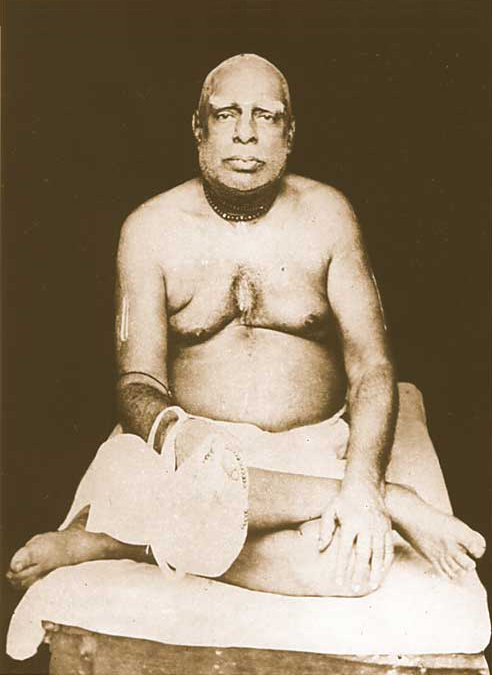In this post we are completing our series on the verse vikrīḍitaṁ Vraja-vadhūbhir idaṁ cha Viṣṇoḥ from the Temple of Love and Affection. Herein we are presenting the translation and purport of this verse given by Srila Bhaktivinod Thakur in his Amrita-Pravaha-Bhashya and some additional comments by Bhagavan Sri Srila Bhakti Siddhanta Saraswati Thakur and Sriman Mahaprabhu.
vikrīḍitaṁ vraja-vadhūbhir idaṁ cha viṣṇoḥ
śraddhānvito ’nuśṛṇuyād atha varṇayed yaḥ
bhaktiṁ parāṁ bhagavati pratilabhya kāmaṁ
hṛd-rogam āśv apahinoty achireṇa dhīraḥ
(Śrīmad Bhāgavatam: 10.33.40)
“A sober devotee (dhira purusha) who hears or narrates descriptions of the supra-mundane play (aprakrita-krida) of Krishna with the Vraja-gopis in the five chapters (of Srimad-Bhagavatam) about the rasa-lila, being endowed with supra-mundane faith (aprakrita-sraddha), after obtaining the full form of transcendental devotion (para-bhakti) for the Lord, swiftly abandons all material desire—heart disease.”
Purport
The Pastimes of Krishna are completely spiritual (chinmay). Material attachment, material desire and so forth are dispelled (from the heart of a practitioner) proportionately to the extent that spiritual love (chit-prema) manifests (within their heart) through the practice of discussing the Pastimes of Krishna—the completely spiritual, self-revealed Supreme Lord who is utterly inaccessible to the mundane senses (Adhoksaja)—with the spiritual gopis (of the spiritual realm of Vrindavan) with faith (shraddha), meaning, with careful realisation of their spiritual nature. When the full form of the spiritual Pastimes (chinmay-lila, of Krishna) manifest (within the heart of a practitioner), not even a scent of material desire remains.
Bhagavan Sri Srila Bhakti Siddhanta Saraswati Thakur explains the connotative depth of this verse in his Anubhashya. Specifically he explains the key words within this verse as follows:
A ‘sober devotee’ (dhirah-purusha) means one who has conquered the six urges of speech, the mind, anger, the tongue, the belly and the genitals; one who is steadfast (achanchala, unwavering); one who practices devotion as a follower of the devotees of Vrindavan (a raganuga-bhakta); and one who is a master of their senses (goswami).
‘Faith’ (shraddha) means extremely firm, supra-mundane faith (aprakrita sudridha-vishvasa) and a sincere inspiration to serve (sevonmukhah).
‘Hears or narrates descriptions’ means constantly hearing from the lotus mouth of Sri Guru without any mundane interruption and thereafter engaging in the sankirtan of the Holy Names, forms, qualities and Pastimes of the Supreme Lord, the son of Nanda Maharaj Sri Krishna, in accordance with the line of the followers of Srila Rupa Goswami Prabhu.
‘Transcendental devotion’ (para-bhakti) means topmost prema-bhakti.
After Sriman Mahaprabhu uses this verse to glorify Srila Ramananda Ray, He comments:
ye śune, ye paḍe, tā̐ra phala etādṛśī
sei bhāvāviṣṭa yei seve ahar-niśi
tā̐ra phala ki kahimu, kahane nā yāya
nitya-siddha sei, prāya-siddha tā̐ra kāya
(Śrī Chaitanya-charitāmṛta: Antya-līlā, 5.49-50)
“Those who hear and those who narrate (these Pastimes) obtain the same result—all of those who serve day and night become absorbed in the divine ecstasy of loving attachment (bhava). What can I say of the result of their activities? It is (so supremely exalted that it is) indescribable. Such persons become eternally liberated (perfected, fulfilled—nitya-siddha) and (even) their bodies become effectively liberated (spiritual, supra-mundane, devoid of all mundane disturbance—siddha).”



